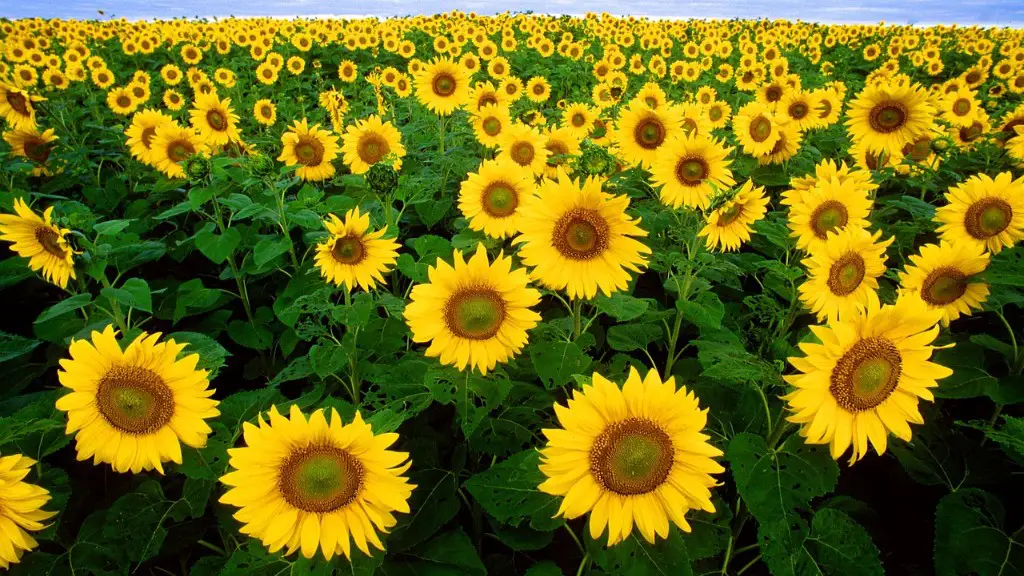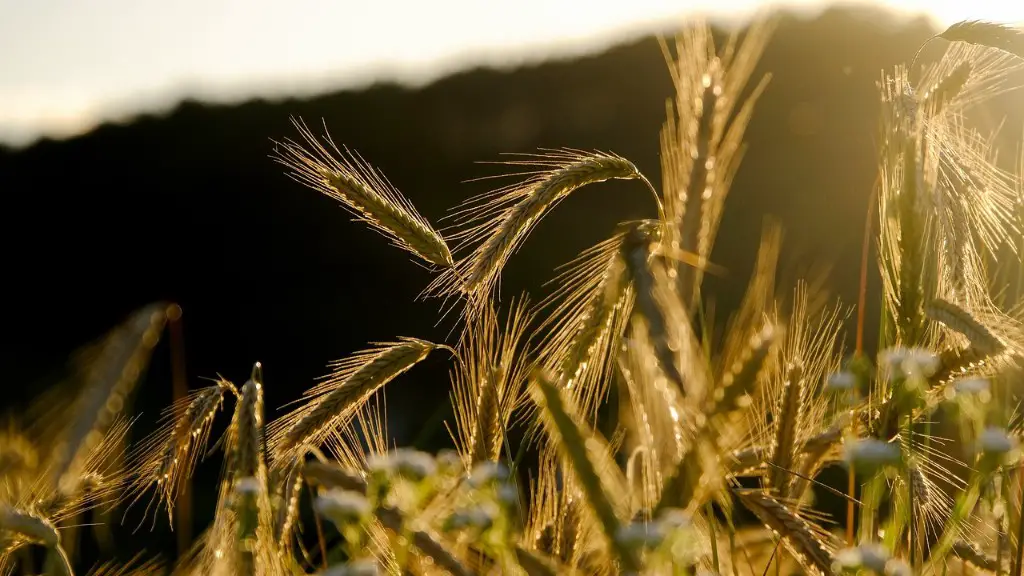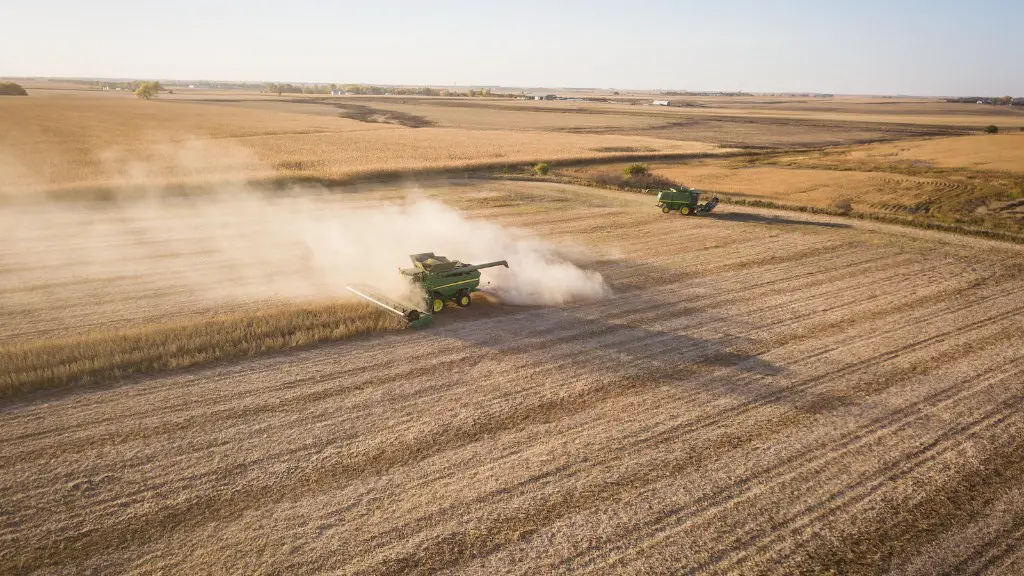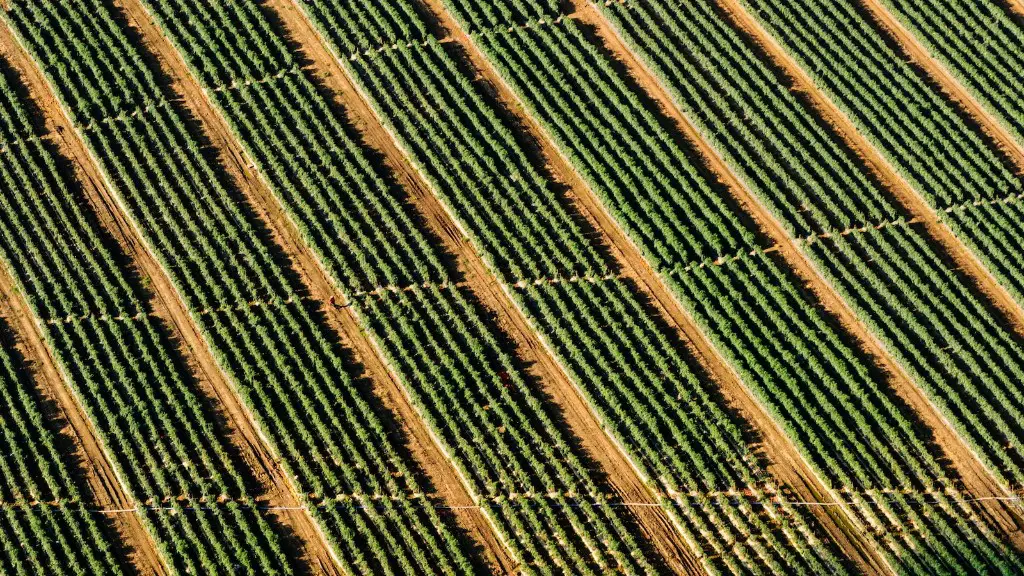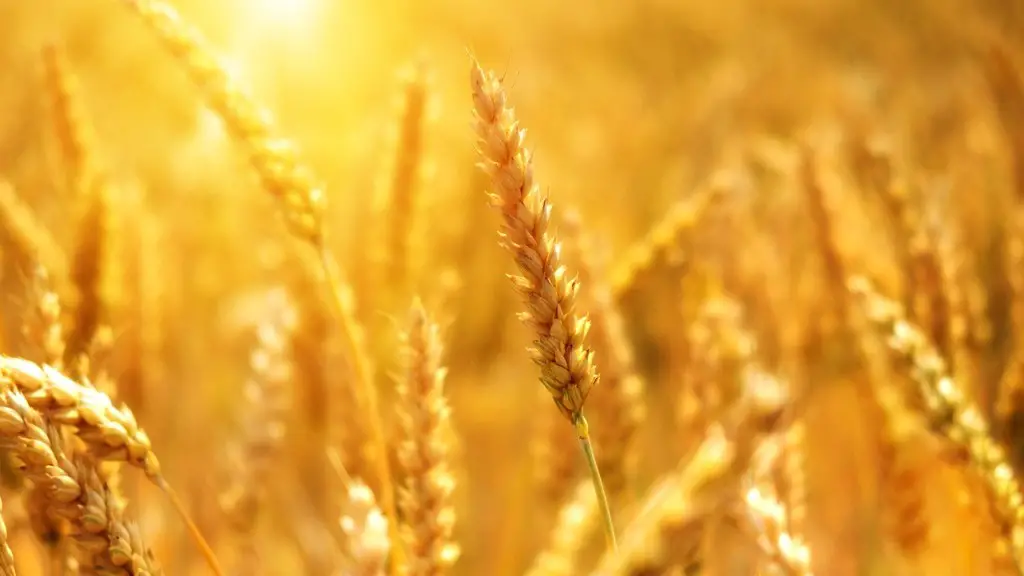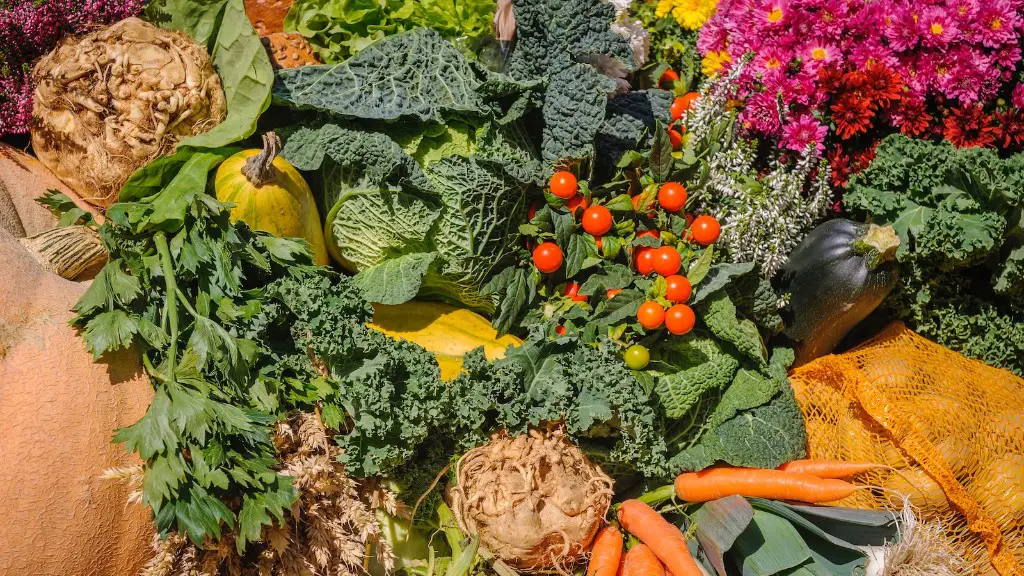Agriculture is the process of producing food, fiber, and other desired products by the cultivation of certain plants and the raising of domesticated animals.
Farming has been an important part of human society since the dawn of civilization. Agriculture allows us to feed ourselves and our families, clothe ourselves, and build our homes.
In recent years, the way we produce food has changed dramatically. Large-scale commercial agriculture has replaced the small family farm in many parts of the world.
While this has led to increased food production, it has also had some negative effects. The use of pesticides and herbicides has increased, and there is now a greater reliance on single crops, which are more susceptible to disease and pests.
Despite these challenges, agriculture remains a vital part of our lives. It is essential to the survival of humankind, and will continue to be so for the foreseeable future.
Agriculture affects our daily lives in a number of ways. The food we eat is grown on farms, and the clothes we wear are often made from agricultural products. Farmers work hard to produce crops and livestock, and their efforts help to ensure that we have enough food to eat and that prices for food stay affordable.
How has agriculture affected humans?
Agriculture has been a key driver of human civilization, enabling the growth of cities and the rise of population. Today, we continue to rely on agriculture to meet the demands of a growing global population. With advances in technology and our understanding of the natural world, we are able to farm crops and animals more efficiently than ever before. This helps to ensure that everyone has access to the food they need to lead a healthy and prosperous life.
Farming allowed early humans to produce enough food that they no longer had to migrate to their food source. This meant they could build permanent structures, and develop villages, towns, and eventually even cities. Closely connected to the rise of settled societies was an increase in population.
What are the 5 effects of agriculture
Agriculture has a number of negative impacts on the environment. One of the most significant is the loss of soil fertility. This occurs when crops are grown in the same place year after year, and the nutrients in the soil are not replenished. This can lead to lower yields and eventually the need to use chemical fertilizers to maintain production.
Eutrophication is another environmental effect of agriculture. This occurs when water bodies are polluted with agricultural run-off, which can contain nutrients like nitrogen and phosphorus. These nutrients can encourage the growth of algae and other aquatic plants, which can then deplete the oxygen in the water, leading to the death of fish and other aquatic creatures.
Deforestation is another environmental effect of agriculture. This occurs when forests are cleared to make way for farmland. This can have a number of impacts, including the loss of habitat for wildlife, the release of carbon dioxide into the atmosphere and the loss of trees that help to regulate the climate.
Climate change is another environmental effect of agriculture. This is due to the release of greenhouse gases like carbon dioxide and methane from agricultural activities. These gases trap heat in the atmosphere, leading to a rise in global temperatures.
Pesticide pollution is another environmental effect of
The agricultural industry is a vital part of the US economy, contributing a significant share of the country’s gross domestic product. In 2021, agriculture, food, and related industries contributed roughly $1264 trillion to US GDP, accounting for approximately 54 percent of the total. Of this amount, the output of America’s farms accounted for $1647 billion, or around 7 percent of US GDP. The agricultural industry thus makes a significant contribution to the US economy and is vital to the country’s continued prosperity.
What are 3 reasons why agriculture is important?
Agriculture is important for a variety of reasons. It is the main source of raw materials for many industries, it is important to international trade, it plays a big role in a nation’s revenue, it provides employment, it is crucial to a country’s development, and it can help heal the environment. Additionally, agriculture is often closely linked with war, as countries seek to control vital agricultural resources.
The world’s population is projected to rise to 9.1 billion by 2050, up from 7.3 billion today. This increase in population will put unprecedented pressure on the world’s food, feed, fiber, and fuel supplies. To meet the needs of this growing population, agriculture must become more productive and efficient, while also protecting the environment and expanding the natural resources supply. Sustainment of the economic viability of agriculture systems is essential to meeting the needs of the world’s growing population.
How important is agriculture in today’s society?
Agriculture provides food, clothing, and shelter for people. It helps people to enjoy a higher quality of life by providing them with necessities. Agriculture also helps to create jobs and support the economy.
Pesticides and fertilizers are major contributors to water pollution. These toxic chemicals can poison fresh water, marine ecosystems, air and soil. They can also remain in the environment for generations. Many pesticides are suspected of disrupting the hormonal systems of people and wildlife. Fertilizer run-off impacts waterways and coral reefs.
What is the most important of agriculture
Agriculture is considered to be the backbone of economic system for developing countries. It is one of the chief industries and a major source of employment in most developing countries. Agriculture plays a chiefly role in economy. It is the primary sector of many economies and the backbone of the world’s food security.
Agriculture is the process of cultivating plants, animals and other organisms for food, fiber, and other products used to sustain human life. Agriculture was the key development in the rise of sedentary human civilization, whereby farming of domesticated species created food surpluses that enabled people to live in cities. The study of agriculture is known as agricultural science. Agriculture encompasses crop and livestock production, aquaculture, fisheries and forestry for food and non-food products.
What are the importance and benefits of agriculture?
While it is true that some materials used in industry can be sourced from elsewhere, such as minerals and metals, it is equally true that many of the key raw materials used in industry today come from agriculture. This includes elements such as cotton and jute for fabric, sugar, tobacco, and edible and non-edible oils. Drugs, diesel fuel, polymer, and other significant sectors rely on these elements in ways that many people have no idea of. This reliance on agriculture for raw materials highlights the importance of the sector, not just for food production but for the industrial world as a whole.
Agricultural contaminants can have a negative impact on water quality, both for surface water and ground water. This can impact both rural and urban communities, as well as the environment. Synthetic fertilizers can deplete soil health and require intensive use of fossil fuels to produce. This can lead to a number of environmental problems, including climate change.
What is the biggest problems in agriculture
Some of the key challenges that the agricultural sector in India faces are poor access to reliable and timely market information for the farmers, absence of supply & demand forecasting, poorly structured and inefficient supply chains, inadequate cold storage facilities and shortage of proper food processing units. Large intermediation between the farmers and the consumers is another key issue. All these factors result in the under-utilization of the agricultural potential in the country and lead to farmers getting low prices for their produce.
Loss of agricultural land and decrease in crop and livestock diversity are two of the most pressing issues facing agriculture today. Agricultural land is being lost to development at an alarming rate, while the variety of crops and livestock produced is decreasing as farmers focus on commodity crops. This loss of diversity makes agriculture more vulnerable to pests and diseases, and threatens the long-term food security of the world.
What are the 10 benefits of agriculture?
1. Agriculture is the source of the food supply – Agriculture is responsible for the production of food for both human and animal consumption. Without agriculture, we would not have the food necessary to sustain life.
2. It is a major source of clothing – Agricultural products are used to produce clothing and other textile goods. Cotton, for example, is a major agricultural crop that is used to make a variety of clothing items.
3. Provision of Raw Materials for Industries – Agriculture provides raw materials that are used in various industries. These raw materials are used to produce products that we use in our everyday lives.
4. Agriculture Creates Jobs Opportunities/Employment – Agriculture provides opportunities for employment and income generation. This is especially important in developing countries where employment opportunities are limited.
5. It contributes to the Gross Domestic Product (GDP) – Agriculture contributes to the GDP of a country through the production of goods and services.
6. Agriculture Contributes to Foreign Exchange Earnings – Agriculture is a major source of foreign exchange earnings for many countries. This is due to the export of agricultural products.
7. It Helps in the Development of Infrastructure – Agriculture helps in the development of infrastructure such as roads, bridges, and
Agriculture is the foundation of civilization and any stable economy. Without agriculture it is not possible to have a city, stock market, banks, university, church or army. Agriculture is the backbone of the world economy and it is important to remember that without it, none of the other aspects of society would be possible.
Conclusion
Agriculture is responsible for the food we eat and the clothes we wear. It affects our daily lives in many ways. Agriculture is also responsible for the production of many other products we use every day, such as medicine, cosmetics, and building materials.
Agricultural production has a direct impact on our daily lives. The food we eat, the clothing we wear, and the products we use all come from agricultural sources. When we think about how agriculture affects our daily lives, we often think about the direct impact it has on the food we eat and the products we use. But agriculture also has a significant indirect impact on our lives. For example, the agricultural industry is a major source of income and employment for many people. It also plays a role in determining the prices of other goods and services in the economy.
